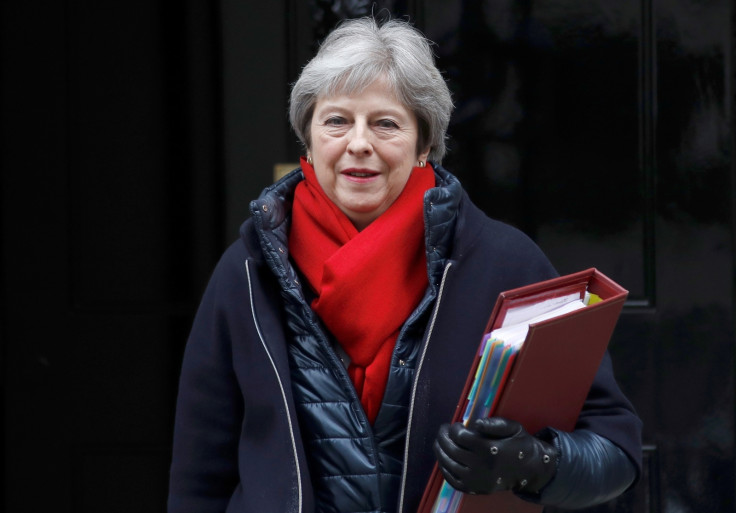Is Brexit about to topple Theresa May? Customs union row could be the turning point
Theresa May faces a battle to keep her party under control.
Jeremy Corbyn's call for Britain to remain in a customs union with the EU after Brexit has created a major headache for Theresa May.
The prime minister is now faced with a tough decision as to how best to proceed with her Brexit strategy, with either direction set to anger one side of her party.
Hard Brexiteers are calling for a clean cut from the EU, with new trade deals and no need for any membership of either 'a' or 'the' customs union.
On the other side, some Tory rebels have said that the PM should ensure that Britain remains in 'a' customs union, a stance now met by the Labour leader.
And Corbyn's decision to align himself on the side of the pro-customs union group of MPs could now be a major turning point for the Brexit path that Britain faces.
Tom Bale, Professor of Politics at the Queen Mary University of London agreed that this move by the Labour leader was a pivotal moment, especially if it lead to a vote in the House of Commons.
Speaking to IBTimes UK, Bale said that it was just one of many major flashpoints facing Theresa May, alongside the controversial subject of the Irish border.

It is the perfect storm, with Bale warning that the PM had to find a way to appease all MPs in her party or face severe political consequences.
"If she can't postpone a vote on a customs union or force Tory Europhiles into line on it, and she feels obliged to negotiate according to that mandate, then the hard Brexiteers may decide it's time to make a move and ditch her for someone more to their liking, presuming they think they can find that person," Bale said.
And with so many issues within her own party, there are concerns that the negotiations are becoming increasingly harder by the day, before they even reach the real negotiating table in Brussels.
Bale admitted that "where there's a will there's a way", but with so much division within the Conservative party, the talks may eventually become impassable.
Theresa May will give a speech on Friday (2 March), outlining the path that her cabinet has agreed for Brexit, but the battle looks set to only intensify.





















